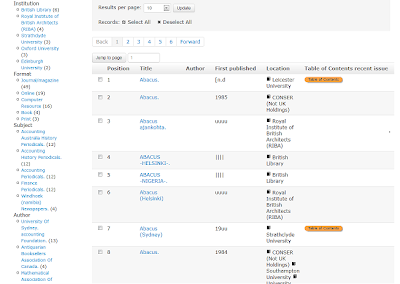We carried out a user satisfaction survey on the service between November 2012 and January 2013. A report of the results was published earlier this year, see our post from February 2013. Overall, the response was very positive with the vast majority of respondents finding SUNCAT not only easy or very easy to use (86%) but that it also saved them time (89%). Further, 97% indicated they would recommend the service to others. However, we did also ask for comments and suggestions on how SUNCAT could be improved. This information is particularly useful for us as we work on redeveloping the SUNCAT interface. We have now analysed and summarised these suggestions into in a Quality Improvement Report with tables detailing our responses and actions. They have been graded using the following formula:
- Done or due for release soon
- Do soon, requires little resource
- Already planned
- Put on to-do list, needs more effort
- Not achievable or beyond scope
We are pleased to report that a large number of suggestions have been graded with “1. Done or due for release soon”, as they have been incorporated into the first release of our redeveloped service – please watch out for imminent news on this!
Please contact us at edina@ed.ac.uk if you have any other suggestions for further improvements or comments on this report.






